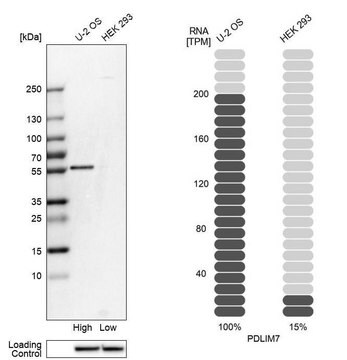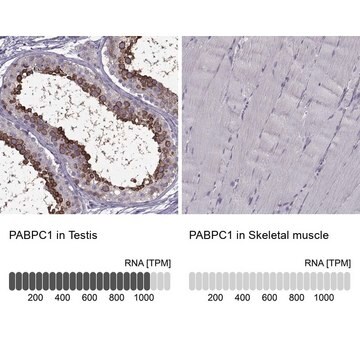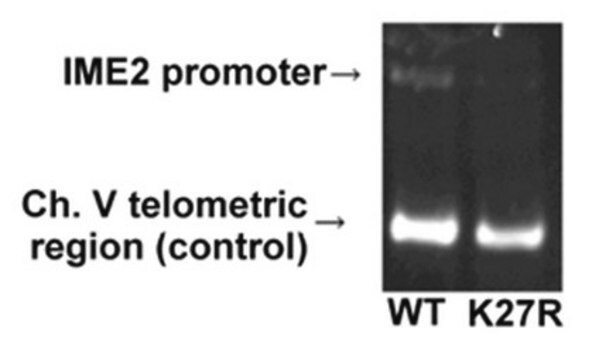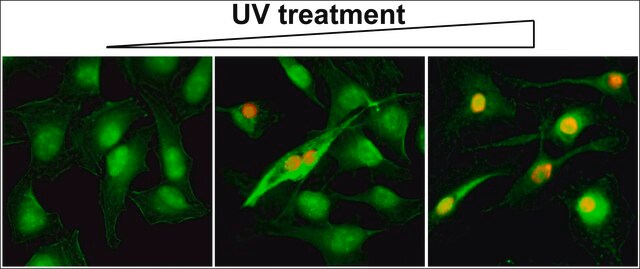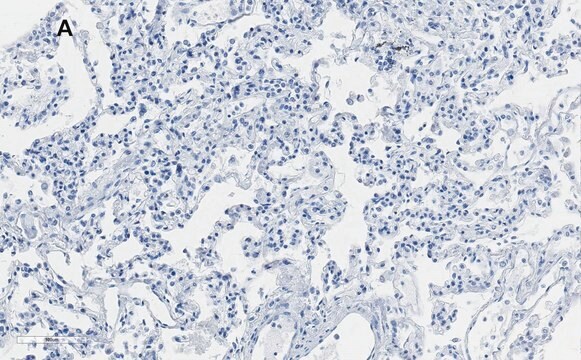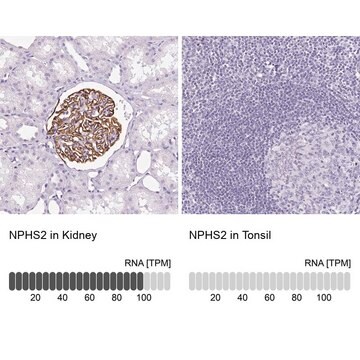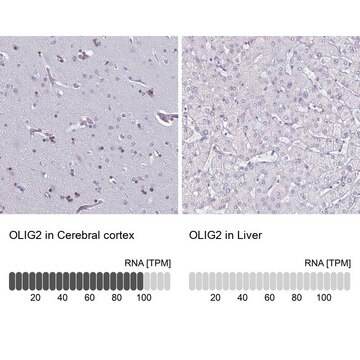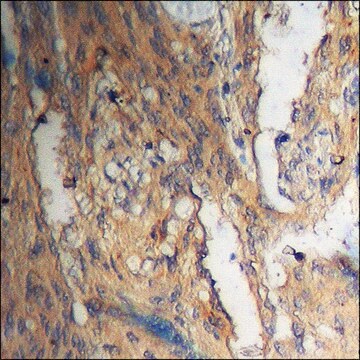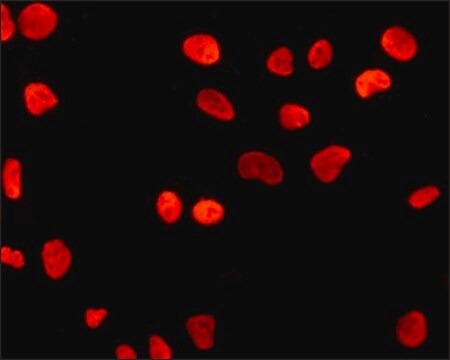MABN2729
Anti-Islet-1 homeobox Antibody, clone 40.2D6
Synonyme(s) :
Insulin gene enhancer protein ISL-1
About This Item
Produits recommandés
Source biologique
mouse
Niveau de qualité
Forme d'anticorps
purified antibody
Type de produit anticorps
primary antibodies
Clone
40.2D6, monoclonal
Poids mol.
calculated mol wt 39.04 kDa
Produit purifié par
using protein G
Espèces réactives
frog, rhesus macaque, zebrafish, human, mouse, rat, guinea pig, canine
Conditionnement
antibody small pack of 100
Technique(s)
ChIP: suitable
electron microscopy: suitable
flow cytometry: suitable
immunocytochemistry: suitable
immunofluorescence: suitable
immunohistochemistry: suitable
immunoprecipitation (IP): suitable
western blot: suitable
Isotype
IgG1κ
Séquence de l'épitope
C-terminal half
Numéro d'accès Protein ID
Numéro d'accès UniProt
Température de stockage
2-8°C
Informations sur le gène
rat ... Isl1(64444)
Spécificité
Immunogène
Application
Evaluated by Immunohistochemistry (Paraffin) in Human pancreas tissue sections.
Immunohistochemistry (Paraffin) Analysis: A 1:50 dilution of this antibody detected Islet-1 homeobox protein in Human pancreas tissue sections.
Tested Applications
Immunohistochemistry Applications: A representative lot detected Islet-1 homeobox in Immunohistochemistry applications (Hoeber, J., et al. (2015). Sci Rep. 5:10666; Fischer, A.J., et al. (2010). PLoS One. 5(6):e10774; Schick, E., et al. (2019). Sci Rep. 9(1):9358; Ediger, B.N., et al. (2014). Diabetes. 63(12):4206-17; Wan, Y., et al. (2019). Cell. 179(2):355-372.e23).
Immunocytochemistry Analysis: A representative lot detected Islet-1 homeobox in Immunocytochemistry applications (Vahsen, B.F., et al. (2022). Sci Rep. 12(1):12606; Hoeber, J., et al. (2015). Sci Rep. 5:10666).
Immunohistochemistry (Paraffin) Analysis: A representative lot detected Islet-1 homeobox in Immunohistochemistry applications (Du, A., et al. (2009). Diabetes. 58(9):2059-69; Ediger, B.N., et al. (2014). Diabetes. 63(12):4206-17).
Chromatin Immunoprecipitation Analysis (ChIP): A representative lot detected Islet-1 homeobox in Chromatin Immunoprecipitation applications (Du, A., et al. (2009). Diabetes.58(9):2059-69).
Immunoprecipitation Analysis: A representative lot immunoprecipitated Islet-1 homeobox in Immunoprecipitation applications (Velasco, S., et al. (2017). Cell Stem Cell. 20(2):205-217).
Western Blotting Analysis: A representative lot detected Islet-1 homeobox in Western Blotting applications (Haremaki, T., et al. (2010). Dev Dyn. 239(7):1977-87).
Electrophoretic Mobility Shift Assay (EMSA): A representative lot detected Islet-1 homeobox in Electrophoretic Mobility Shift Assay applications (Ediger, B.N., et al. (2014). Diabetes. 63(12):4206-17).
Flow Cytometry Analysis: A representative lot detected Islet-1 homeobox in Flow Cytometry applications (Meng, X., et al. (2020). Genes (Basel). 11(3):328).
Immunofluorescence Analysis: A representative lot detected Islet-1 homeobox in Immunofluorescence applications (Vahsen, B.F., et al. (2022). Sci Rep. 12(1):12606; Hoeber, J., et al. (2015). Sci Rep. 5:10666; Du, A., et al. (2009). Diabetes. 58(9):2059-69; Ediger, B.N., et al. (2014). Diabetes. 63(12):4206-17).
Note: Actual optimal working dilutions must be determined by end user as specimens, and experimental conditions may vary with the end user.
Description de la cible
Forme physique
Reconstitution
Stockage et stabilité
Autres remarques
Clause de non-responsabilité
Vous ne trouvez pas le bon produit ?
Essayez notre Outil de sélection de produits.
Code de la classe de stockage
12 - Non Combustible Liquids
Classe de danger pour l'eau (WGK)
WGK 1
Point d'éclair (°F)
Not applicable
Point d'éclair (°C)
Not applicable
Certificats d'analyse (COA)
Recherchez un Certificats d'analyse (COA) en saisissant le numéro de lot du produit. Les numéros de lot figurent sur l'étiquette du produit après les mots "Lot" ou "Batch".
Déjà en possession de ce produit ?
Retrouvez la documentation relative aux produits que vous avez récemment achetés dans la Bibliothèque de documents.
Notre équipe de scientifiques dispose d'une expérience dans tous les secteurs de la recherche, notamment en sciences de la vie, science des matériaux, synthèse chimique, chromatographie, analyse et dans de nombreux autres domaines..
Contacter notre Service technique